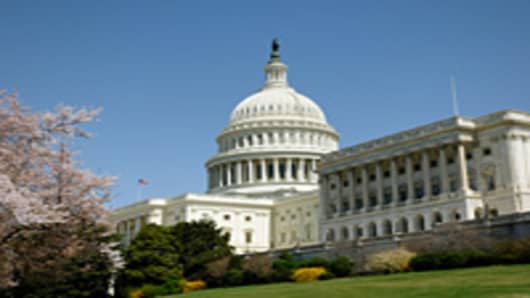The budget deficit is so serious an issue that it can no longer be ignored by splits in government, a group of former members of the President’s Council of Economic Advisers wrote in an open letter in The Politico magazine Thursday.
In a letter to Congress and the president, 10 ex-chairman and chairwoman called for intense negotiations between both parties to take place in the wake of a report by the bipartisan National Commission of Fiscal Responsibility and Reform entitled "The Moment of Truth," issued in December.
The report, by co-chairmen Erskine Bowles and Alan Simpson, argues that the long-run federal budget deficit will pose a serious threat to the long-term recovery of the economy.
It was supported by 11 out of a panel of 18 Democrats and Republicans.
The group argues that despite tentative signs of a recovery in the US economy, long-term issues such as an aging population and rapidly rising health-care costs threaten to derail the recovery.
While the budget deficit is likely to shrink over the coming years as the economy recovers, the growing gap between spending and revenue will take a toll on private investment and economic growth.
These combined factors will encourage bond markets to turn against the US threatening an even larger financial crisis than in 2008.
"The Moment of Truth" report documents that the “problem is real and the solution will be painful,” and the group said that cutting wasteful government spending and raising taxes will not solve the situation.
The Commission’s specific proposals include cutting discretionary spending substantially, relative to current projections, significant tax reform by limiting tax expenditures -- thereby broadening the tax base -- with the resulting revenue used for deficit reduction and some lowering of marginal tax rates.
Even tackling security spending, which the group claims has grown rapidly in the past decade, is on the table.
It also calls for the slowing in government health-care expenditure by setting spending targets and a process to suggest further reforms if these aren’t met, which the group acknowledges are incomplete.
Proposed measures include increasing the scope of the newly-formed Independent Payment advisory Board and limiting the tax deductibility of health insurance.
The group of 10 admits that they are not all in agreement with all of the Commission’s proposals and would even prefer alternative proposals.
But with the budget deficit outlook unsustainable the proposals must be seriously considered to “avoid a growing threat to our well being.”
"We know the measures to deal with the long-run deficit are politically difficult. The only way to accomplish them is for members of both parties to accept the political risks together."


